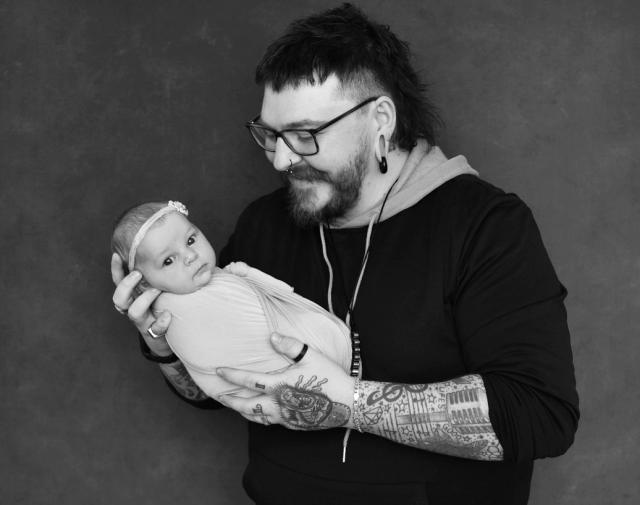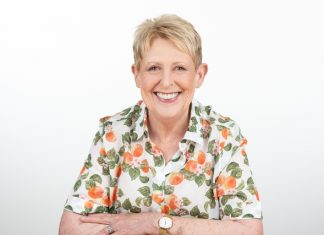By Casey Neill
Matt Carter felt ‘empty and quite lost’ when he welcomed his first child.
“I never knew that having postpartum depression was something that men could go through,” he said.
“When we brought baby home I felt really, really empty and quite lost.
“The cries really, really cut through me like a knife.
“I wanted to hold her and I wanted to be nurturing and be a father, but I was so scared that I was going to hurt her in some way or going to break her.
“That would lead to me just having really weird outbursts where I’d just start crying uncontrollably and wouldn’t really know what to do.”
Matt was diagnosed with postnatal depression seven weeks after welcoming his first child and referred to Perinatal Anxiety and Depression Australia (PANDA).
“I didn’t know about PANDA until I was already deep in it,” he said.
“If I had of known about PANDA from the get go I may have been able to save myself some weeks where I could have enjoyed parenthood instead of feared it.
“I felt numb a lot and I felt like I was on autopilot a lot, but I also felt a lot of sadness.”
Matt urged other dads struggling with a new baby to talk to friends, family or health professionals.
“Reach out to anyone and everyone,” he said.
The number of new and expecting dads completing PANDA’s Mental Health Checklist more than doubled in the 12 months to December 2022.
One in 10 calls to the PANDA Helpline are made by men.
PANDA CEO Julie Borninkhof said one in 10 dads developed perinatal anxiety and/or depression symptoms during pregnancy or after a baby was born.
“We often set the men of our communities up to feel that they have to be strong and weather the storm,” she said.
“It’s really important to stop and experience what you’re going through.
“Dads have a really big weight on their shoulders and we don’t expect them to carry it alone.
“Even rocks crumble.”
Ms Borninkhof said dads experienced a significant adjustment to their sense of identity when a baby arrived.
“That throws up a whole range of emotions and feelings,” she said.
“Culturally we set people up to think that it’s going to be an amazing golden time.
“We really want dads to feel that that experience is valid and not to push it down and to reach out and have conversations.”
Signs dads might be struggling include disrupted sleep, being unable to eat or eating too much, or turning to drugs or alcohol.
“They’re also the same things that you’d expect to experience as a new parent,” Ms Borninkhof said.
“We also know for dads that they quite often have a tendency to overwork as a way of disengaging from the household and turning to a space where they feel a little bit more functional.
“If people aren’t sure what they are feeling is normal, or if they are seeing signs of mental health
distress in loved ones, our website offers 24-hour access to our online mental health checklist.”
PANDA also works closely with free service SMS4dads.
Associate Professor Richard Fletcher, from University of Newcastle’s Fathers and Families Research Program, said SMS4dads came about “because fathers told us that the health system doesn’t provide services that speak directly to dads”.
The service sends brief text messages that support men in their role as fathers and increase
awareness of their influence on baby’s brain development.
“It also provides tips on working collaboratively with their partner and checks in on their wellbeing and offers professional support if needed,” Ass Prof Fletcher said.
More than 12,000 dads have enrolled since the service launched.
Anyone needing support during pregnancy or post childbirth can call the PANDA Helpline on 1300 726 306 Monday to Saturday, 9am to 7.30pm.
For more information or to access PANDA’s Mental Health Checklist, visit panda.org.au.







